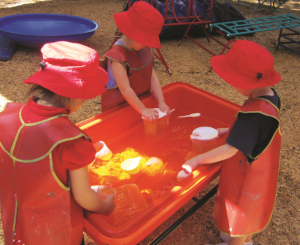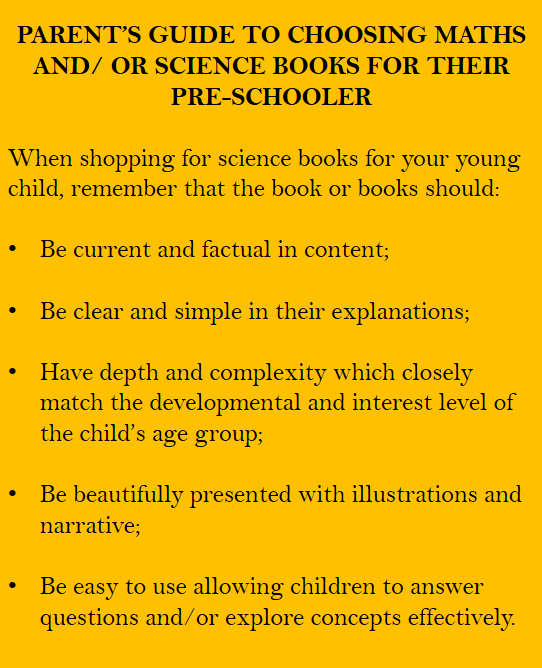Early Mastery of Maths and Science
by on 02/08/2025 ...

Young children are naturally competent with the basic concepts of math and science even before they attend any formal schooling. They explore these concepts through day to day interactions and absorb information fast. The thing is, they might not necessarily know that what they’re experiencing or partaking of are the products or concepts of math and science Therefore, it is important that math and science education be taken seriously at the early ages so as to make full use of this window of time where learning and comprehension are easy for children.
The Early Ages of Learning
 Research on children’s learning in the first six years of life demonstrates the importance of early experiences in mathematics. An engaging and encouraging climate for children’s early encounters with mathematics develops their confidence in their ability to understand and use mathematics.1
Research on children’s learning in the first six years of life demonstrates the importance of early experiences in mathematics. An engaging and encouraging climate for children’s early encounters with mathematics develops their confidence in their ability to understand and use mathematics.1
Positive learning experiences help children to develop dispositions such as curiosity, imagination, flexibility, inventiveness, and persistence, which contribute to their future success in and out of school. Early childhood educators should actively introduce mathematical concepts, methods, and language through a variety of appropriate experiences and research-based teaching strategies. Teachers should guide children in seeing connections of ideas within mathematics as well as with other subjects, developing their mathematical knowledge throughout the day and across the curriculum. They must encourage children to communicate, explaining their thinking as they connect with the laws of mathematics in deep and sustained ways.
Recognizing the Limits of Young Children’s Learning
 Transductive thinking is concrete and unilevel. Math and science, on the other hand, have concepts at many different levels of abstraction. For some disciplines, even the lowest levels of abstraction are beyond the abilities of young children. There is simply no way to teach a preschool child algebra without breaking down the concepts to the point that they appear non-algebraic. Algebra requires the learner to have acquired formal operations, operations that enable the young person to deal with second symbol systems. In algebra, a letter stands for another symbol, a number. Young children are not yet able to deal with second symbol systems.
Transductive thinking is concrete and unilevel. Math and science, on the other hand, have concepts at many different levels of abstraction. For some disciplines, even the lowest levels of abstraction are beyond the abilities of young children. There is simply no way to teach a preschool child algebra without breaking down the concepts to the point that they appear non-algebraic. Algebra requires the learner to have acquired formal operations, operations that enable the young person to deal with second symbol systems. In algebra, a letter stands for another symbol, a number. Young children are not yet able to deal with second symbol systems.
Why Are Science and Mathematics Important for Kids?
Science teaches kids about logic. Why does an object fall to the grown when you let go of it? Why is the sky blue? Why do we need plants on earth? Young children generally have a strong sense of curiosity so pre-school science will definitely give them more things to ponder about and also occupy them with activities such as fun experiments. These will allow them to become more creative, curious and also learn to arrive at logical answers.
 Children that are exposed to formal mathematics and science lessons in the early years will also learn how to apply them in daily life. In kindergarten, children will have their first experience of dealing with money. When they have money, they can have a hands on experience on how buying transactions really work. By having early knowledge of math, they can start learning how to budget their money and even think prudently before buying anything. Children who have knowledge of science and math in their early days will also be better equipped to absorb more complicated areas of study and go further in their academic life.
Children that are exposed to formal mathematics and science lessons in the early years will also learn how to apply them in daily life. In kindergarten, children will have their first experience of dealing with money. When they have money, they can have a hands on experience on how buying transactions really work. By having early knowledge of math, they can start learning how to budget their money and even think prudently before buying anything. Children who have knowledge of science and math in their early days will also be better equipped to absorb more complicated areas of study and go further in their academic life.

Reference 1 (Clements & Conference Working Group, 2004).
This article is taken from Smart Kids World issue 2014 Vol.04.

































